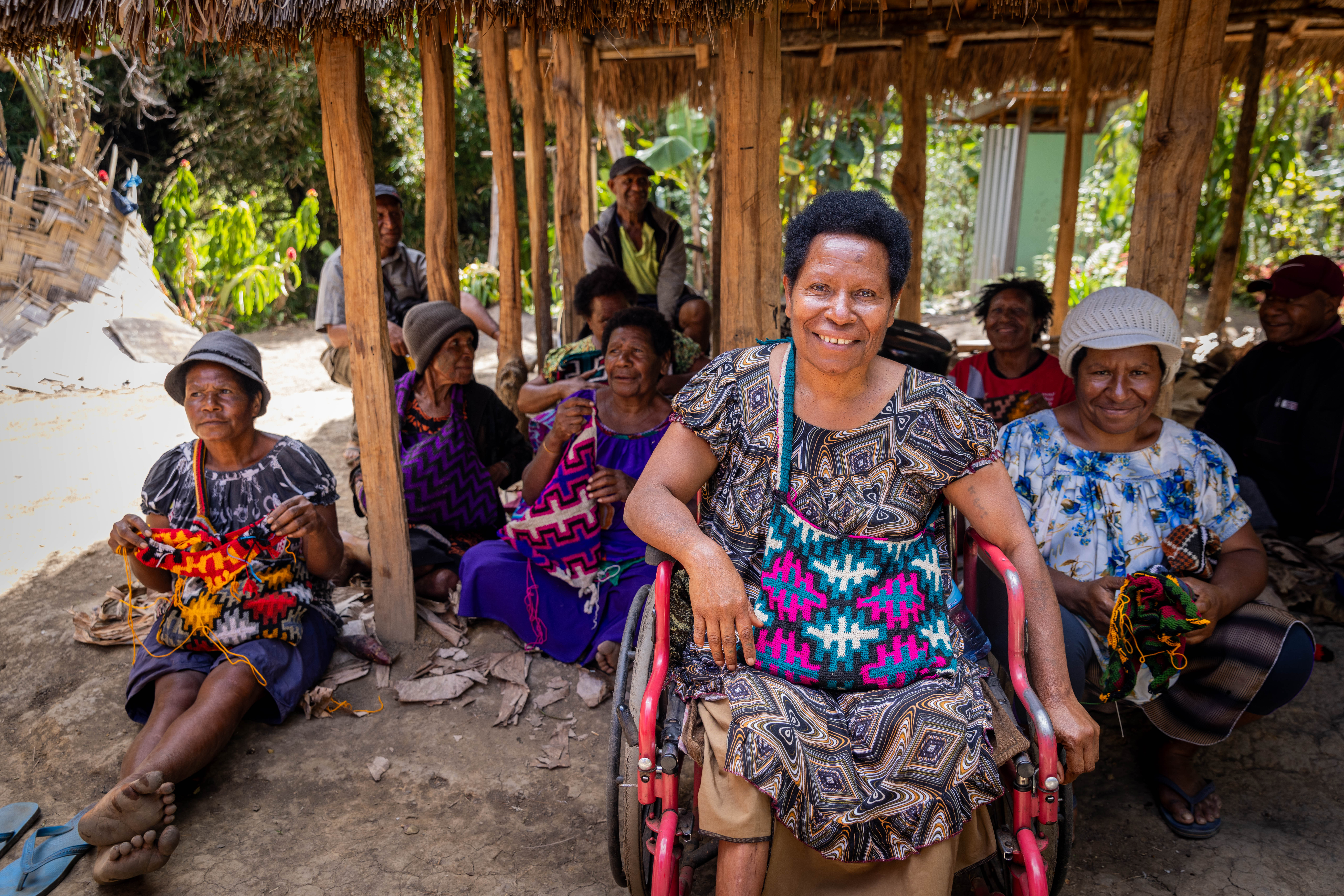Supporting the Pacific Disability Forum to engage in and influence development processes
Iag, Pacific | October 7, 2025
Since 2011, CBM’s Inclusion Advisory Group (CBM IAG) has partnered with the Australian Government’s Department of Foreign Affairs and Trade (DFAT) with a shared commitment to ensuring an active and central role for people with disabilities and their representative organisations.
As a key focus of the partnership, CBM IAG has provided support to the Pacific Disability Forum (PDF). Guided by PDF’s strategic plan and grounded in a collaborative approach, CBM IAG’s work has helped strengthen and complement PDF’s existing capabilities in three key areas:
Capacity building forged on trust and connection
CBM IAG has worked hand in hand with PDF, helping them as they grow in ability and confidence. Through a unique buddy system, CBM IAG advisors are often paired with PDF staff to provide coaching on pitching for effective advocacy, writing strategically and navigating diplomatically. CBM IAG also provided important backup during periods of surge, change or loss, with PDF staff reporting the importance of the reassurance that there was reliable support to keep operations moving.
“I think for me it’s the comradery. I feel comfortable talking to members of the team about anything… I don’t feel like I will be judged. The informal relationship also helps – when it’s informal we can talk about anything and it’s so easy to pass ideas off each other.” – PDF Member
As a result, PDF has become a stronger Secretariat, better equipped to support the diverse needs of its 71 member organisations across 22 countries.
Articulating and advancing thought leadership
CBM IAG and PDF have worked closely to articulate concepts (like preconditions for inclusion and disability equity and rights) and advance evidence-based thought leadership. This has meant PDF has been ahead of the curve in conceiving and framing conceptual approaches to disability rights. A scan of the sector shows that PDF (with CBM IAG support) were raising disability concepts at least 5 years before they were considered by international development stakeholders.
PDF is increasingly considered a respected voice in international disability inclusion, influencing policy change and key stakeholders (like DFAT, UNESCAP, UNPRPD and PIFs) who have adopted PDF’s conceptualisations on disability rights.
Brokering connections for strengthened voice
CBM IAG’s support through the DFAT technical partnership has brokered connections and facilitated communication for PDF with stakeholders throughout the sector. This, together with the strengthening of PDF has seen PDF invited to engage in more international platforms and share the unique experiences of people with disabilities in the Pacific. PDF’s rising profile has enabled it to secure additional funding, allowing it to meet increased demands sustainably.
In turn, PDF is using its platform to bring marginalised disability voices to a range of policy dialogues across the Pacific. These groups include youth, Indigenous people, older people, people with intellectual disability, people with psychosocial disability, and women.
The support of the DFAT-CBM IAG Partnership has contributed significantly in a way that PDF reflects has made them a stronger, more viable organisation, more effective in advocating for its members. The growing influence of PDF on governments, civil society and regional organisations exemplifies how empowering an Organisation of People with Disabilities can have a flow on effect, positively impacting many and ensuring voices of lived experience are central in international dialogues.
Read the full case study here.
https://www.cbm.org.au/iag/supporting-the-pacific-disability-forum-to-engage-in-and-influence-development-processes
Related Stories

Time To Change Global – Reducing Mental Health Stigma
In global effort to reduce mental health stigma, the Time to Change Global (TTCG)...

Gender and Disability: advancing intersectional equity within international programming
The Department of Foreign Affairs and Trade (DFAT)’s new...

Preconditions for inclusion – what they are and what they’re not
The preconditions are the key elements that need to be in...
